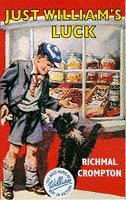'Love doesn't care about lovers'
Black Paths
by David B
David B's memoir Epileptic is a masterpiece of graphic work. The dark and oppressive black and white panels described in a unique way the effects of debilitating epilepsy, not only on his brother who had it, but on the rest of the family too as they struggled to raise him amidst the increasingly desperate search to find effective treatments. I would recommend it without qualification and have been looking forward to what he might produce next. Black Paths is a graphic novel with its roots in historical fact, taking its inspiration from a little known oddity in the make-up of post-World War I Europe. The collapse of the Austro-Hungarian Empire led to the Allied powers overseeing a new distribution of power whilst trying to breathe life into the fledgling League of Nations. One disputed area was the Adriatic port city of Fiume, contested by Italy and what would become Yugoslavia, but whilst lawlessness grew the confusion was exploited by an Italian Fascist poet, Gabrielle D'Annunzio: war hero, Dadaist, and self-styled 'Pirate King', he lead an army of loyal foot soldiers into the town to take control and set up a free Republic.
A Utopian city-state born from chaos and immersed in the surreality of Dadaism and the avant-garde was almost bound to be as much of a political success as it sounds, but it's certainly fertile ground for a graphic exploration of the fallout from war. David B is also the perfect man for the job, well-practiced at creating panels filled to the brim with detail, crowded with figures, images that seem to writhe before your eyes.
Amidst this chaos is Lauriano, a young soldier haunted by his experiences on the front line and Mina, a beautiful young cabaret singer. Lauriano like many of his friends from the front line is operating like some kind of bandit, petty crime and thieving is rife among many competing gangs, and when he and his partners reclaim some of their booty from a rival group Lauriano finds Mina hiding in the adjacent room '...part of the haul.' United with his 'electric Helen' they escape across the rooftops and we follow the young lovers as they seek safety and refuge in a city rapidly exploding into riots.
by David B
David B's memoir Epileptic is a masterpiece of graphic work. The dark and oppressive black and white panels described in a unique way the effects of debilitating epilepsy, not only on his brother who had it, but on the rest of the family too as they struggled to raise him amidst the increasingly desperate search to find effective treatments. I would recommend it without qualification and have been looking forward to what he might produce next. Black Paths is a graphic novel with its roots in historical fact, taking its inspiration from a little known oddity in the make-up of post-World War I Europe. The collapse of the Austro-Hungarian Empire led to the Allied powers overseeing a new distribution of power whilst trying to breathe life into the fledgling League of Nations. One disputed area was the Adriatic port city of Fiume, contested by Italy and what would become Yugoslavia, but whilst lawlessness grew the confusion was exploited by an Italian Fascist poet, Gabrielle D'Annunzio: war hero, Dadaist, and self-styled 'Pirate King', he lead an army of loyal foot soldiers into the town to take control and set up a free Republic.
A Utopian city-state born from chaos and immersed in the surreality of Dadaism and the avant-garde was almost bound to be as much of a political success as it sounds, but it's certainly fertile ground for a graphic exploration of the fallout from war. David B is also the perfect man for the job, well-practiced at creating panels filled to the brim with detail, crowded with figures, images that seem to writhe before your eyes.
Amidst this chaos is Lauriano, a young soldier haunted by his experiences on the front line and Mina, a beautiful young cabaret singer. Lauriano like many of his friends from the front line is operating like some kind of bandit, petty crime and thieving is rife among many competing gangs, and when he and his partners reclaim some of their booty from a rival group Lauriano finds Mina hiding in the adjacent room '...part of the haul.' United with his 'electric Helen' they escape across the rooftops and we follow the young lovers as they seek safety and refuge in a city rapidly exploding into riots.
The plot is frenetic and hard to follow at times. Intercenine fighting, the bonkers political cabinet of D'Annunzio, underground writings, revolution, the ghosts of the past and a statue of Saint Francis of Assisi are all involved. As with Epileptic the most exciting moments come when art breaks through into the real world. The depiction of warfare, Lauriano's haunting memories and the section where we learn about the two days he spent alone in no-man's land are brilliantly drawn. It is also thrilling when David B takes a full page and allows his drawing to spill across it, panel borders dissolved like those of countries in conflict, and the eye can wander over the page to make sense of the chaos. Even the spectre of full-colour is something of an assault after the black and white world of Epileptic but this well-produced volume from independent publisher Self Made Hero not only does justice to that vision but augurs well for the boldness of other titles in their burgeoning Original Fiction series.
Read more...








